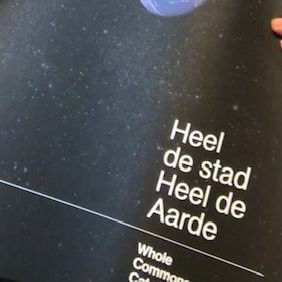In the Urbact Civic eState project Amsterdam works together with several European cities to locally adopt progressive policies on the urban commons. As a first step the Amsterdam Foundation Onschatbare Waarde ('invaluable value’), together with Amsterdam commons initiatives, made the beautiful catalog Heel de Stad, Heel de Aarde (the whole city, the whole earth) during the past 6 months. A guide with all kinds of tips and tools, ideas and projects, people and books for everyone who is or wants to work collectively.
Heel de Stad, Heel de Aarde is inspired by the Whole Earth Catalog. Like in the original Whole Earth Catalog, experts and doers share reviews of all kinds of books and practices. The Catalog - in short - shows the positive and practical ways in which we can shape the future and shows that we not only have to look at the government or the market, but also start ourselves: in commons!
The Catalog is available online in Dutch via http://heeldeaarde.net - and you can also request one hard copy (with poster). And via https://wijamsterdam.nl/verhalen/lege-supermarkt-ga-naar-het-voedselbos you will find an interview with Natascha, the editor in chief, and a short introduction video about the commons in Amsterdam.
<http://heeldeaarde.net/> and <https://urbact.eu/civic-estate>
[►
Heel de aarde, heel de stad
Whole Commons Catalog
Gemeente Amsterdam Vimeo](https://vimeo.com/434468746)



